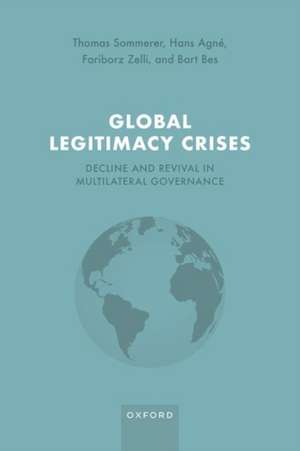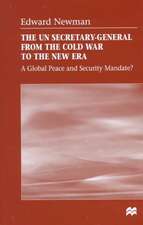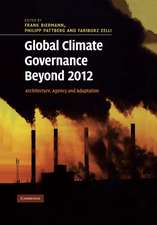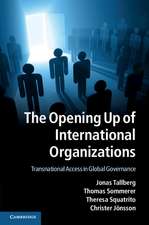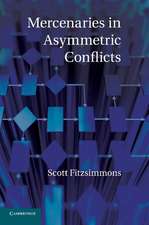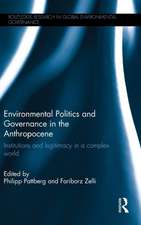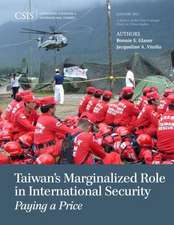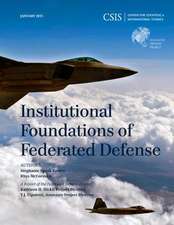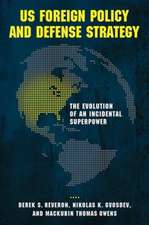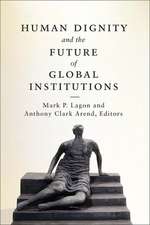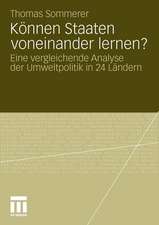Global Legitimacy Crises: Decline and Revival in Multilateral Governance
Autor Thomas Sommerer, Hans Agné, Fariborz Zelli, Bart Besen Limba Engleză Hardback – 28 iul 2022
Preț: 499.03 lei
Preț vechi: 612.70 lei
-19% Nou
Puncte Express: 749
Preț estimativ în valută:
95.49€ • 102.11$ • 79.62£
95.49€ • 102.11$ • 79.62£
Carte disponibilă
Livrare economică 17-24 martie
Livrare express 13-19 martie pentru 53.21 lei
Preluare comenzi: 021 569.72.76
Specificații
ISBN-13: 9780192856326
ISBN-10: 0192856324
Pagini: 238
Dimensiuni: 163 x 240 x 18 mm
Greutate: 0.52 kg
Editura: OUP OXFORD
Colecția OUP Oxford
Locul publicării:Oxford, United Kingdom
ISBN-10: 0192856324
Pagini: 238
Dimensiuni: 163 x 240 x 18 mm
Greutate: 0.52 kg
Editura: OUP OXFORD
Colecția OUP Oxford
Locul publicării:Oxford, United Kingdom
Notă biografică
Thomas Sommerer is Professor of Political Science with a specialization in international organizations at the University of Potsdam. Previously, he was Associate Professor at Stockholm University and worked as a Research Fellow at the University of Konstanz (Dr. rer soc. in 2009), the University of Hamburg, and the Max Planck Institute in Bonn. His research is focused on the design and performance of international organizations, democracy, and legitimacy in global governance, and transnational processes of diffusion and learningHans Agné is Professor of Political Science at Stockholm University since 2020. He defended his PhD in 2004 and was tenured in 2012 at Stockholm university. He has been visiting scholar at Leeds University, at Wissenschaftszentrum in Berlin, at London School of economics and political science, at Catania University, and at Oxford University. His research interests revolve around legitimacy and democracy political theory, international relations, and comparative politics. Fariborz Zelli is Associate Professor at the Department of Political Science at Lund University. Prior to joining Lund University in 2012, he worked as a Post-doctoral Fellow at the German Development Institute (2009-2011) and the Tyndall Centre for Climate Change Research (2006-2009) and as a Research Assistant at the Center for International Relations at Tübingen University (2001-2003). His major research interests include global environmental governance (in particular regarding climate change, biodiversity and forestry), institutional complexity, and environmental peacebuilding.Bart Joachim Bes is a political scientist who studies the impact of public and political opposition on governmental institutions, particularly the attitudinal and behavioral responses of policy-makers. He completed his Ph.D. at the Vrije Universiteit Amsterdam, where he investigated the impact of politicization on EU Commission officials' institutional role conceptions (2012 - 2017). Hereafter, he became a postdoctoral fellow in the Legitimacy in Global Governance (LegGov) program at Lund University.
